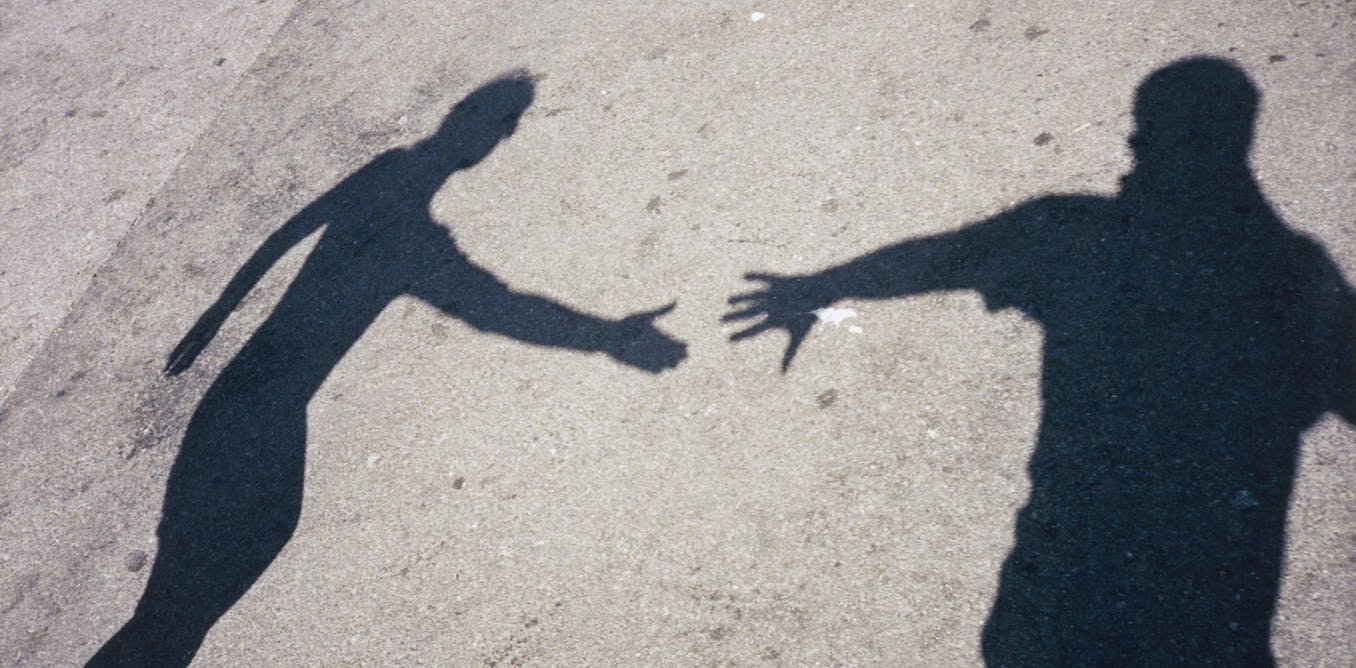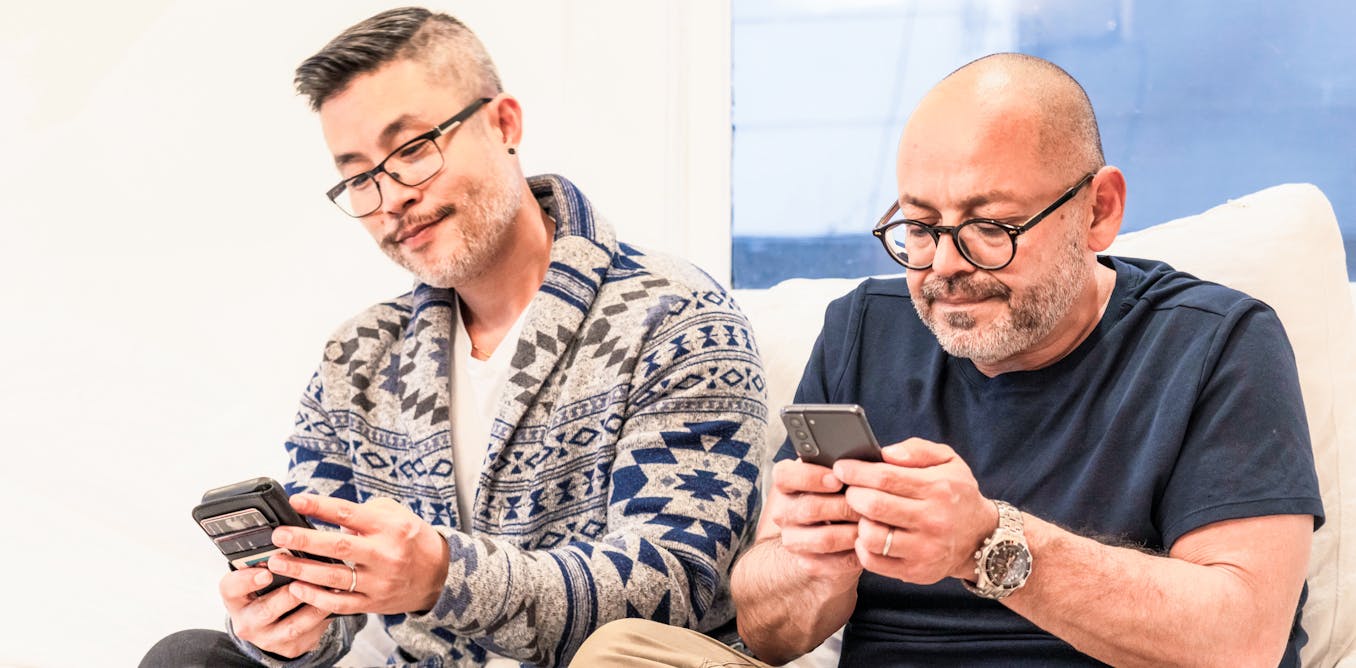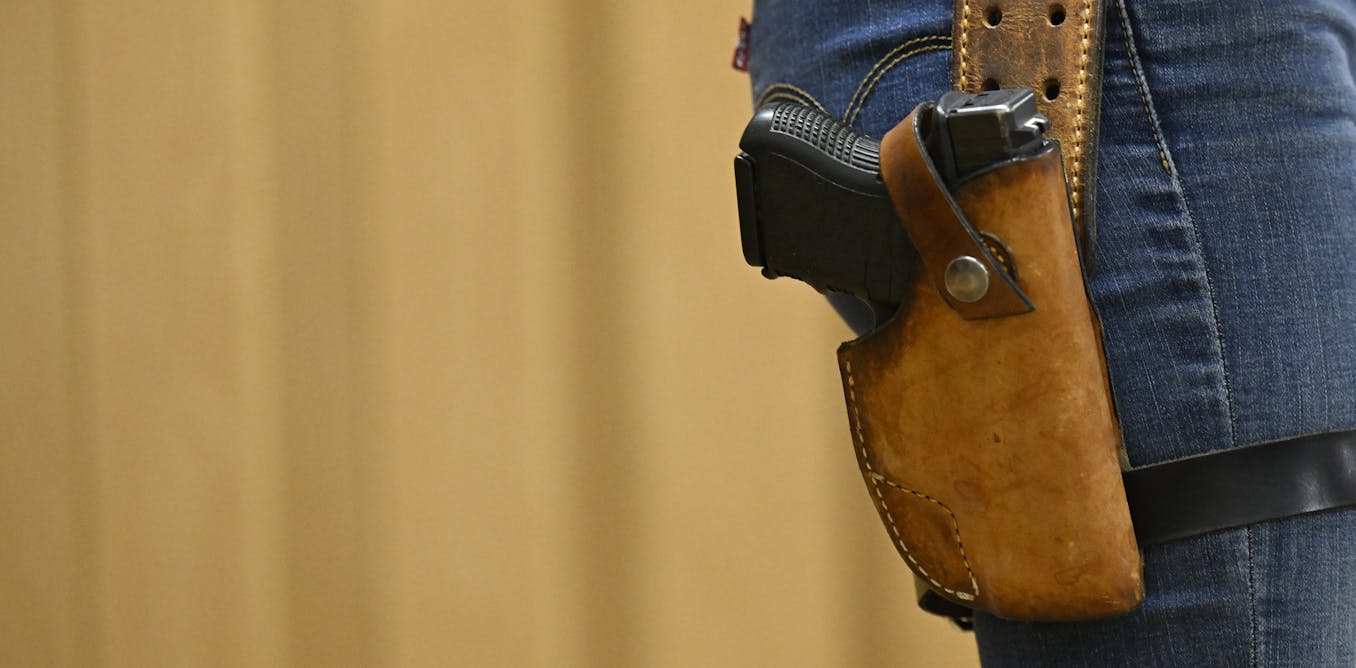An upward spiral – how small acts of kindness and connection really can change the world, according to psychology research
A psychologist and human connection researcher explains how individual acts of kindness and connection can have a real impact on global change when these acts are collective.
Nov. 27, 2024 • ~8 min
Gen Z heads home: How to navigate the evolving parent-child relationship as kids become adults
Parenting’s ultimate goal is raising healthy, happy, successful children. Figuring out how to keep parenting once the kids are adults is just another transition.
Nov. 25, 2024 • ~9 min
Awkwardness can hit in any social situation – here are a philosopher’s 5 strategies to navigate it with grace
Awkwardness is what happens in social interactions when you suddenly find yourself without a script to guide you through.
Nov. 22, 2024 • ~7 min
Time alone heightens ‘threat alert’ in teenagers – even when connecting on social media
Scientists say the findings might shed light on the link between loneliness and mental health conditions such as anxiety disorders, which are on the rise in
Nov. 13, 2024 • ~6 min
I’m a neuroscientist who taught rats to drive − their joy suggests how anticipating fun can enrich human life
Equipped with a rodent version of a Cybertruck, these driving rats reveal that positive experiences may sculpt the brain just as powerfully as stressful ones
Nov. 11, 2024 • ~11 min
Election anxiety doesn’t need to win − here are 3 science-backed strategies from a clinical psychologist to rein in the stress
Given the polarized political climate in the US, it’s hard not to be affected by the election. But there are ways to make sure stress and uncertainty don’t send you on a downward spiral.
Nov. 1, 2024 • ~7 min
Monkeys know who will win the election – primal instincts humans share with them shape voters’ choices
Every human brain still holds primitive instincts that we share with our monkey ancestors. Is that part of your brain in charge when you cast your ballot?
Nov. 1, 2024 • ~8 min
Americans own guns to protect themselves from psychological as well as physical threats
Owning a gun can influence your outlook, both fueling a sense of danger in the world around you and holding out the promise of rescuing you from those fears.
Oct. 31, 2024 • ~8 min
Time to freak out? How the existential terror of hurricanes can fuel climate change denial
Terror management theory explores the lengths our minds will go to to deny existential threats. Psychologists explain what that can mean for climate denial.
Oct. 30, 2024 • ~8 min
/
56








